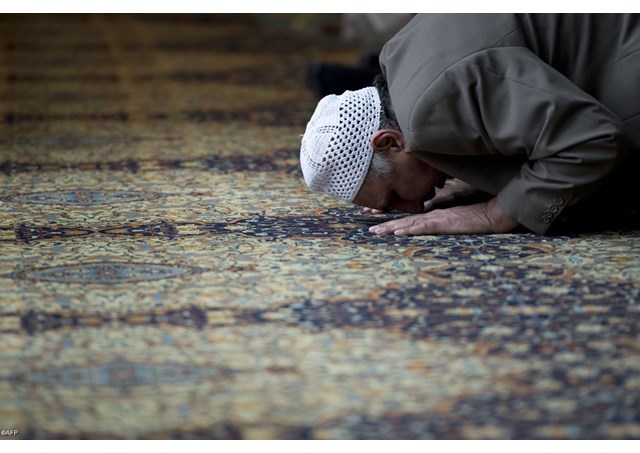
European Church leaders discuss prospects of Christian-Muslim dialogue

(Vatican Radio) The bishops of Europe and delegates in charge of relations with the Continent’s Muslim community are meeting in Saint-Maurice, Switzerland, 13-15 May 2015 to examine their experiences in dialogue with Islam and to formulate ways to improve the rapport between the faiths.
The meeting, being held in the 6th century Abbey of Saint-Maurice (Switzerland), the oldest and continuously functioning monastery in the West, is the fourth organized on this topic by the Council of European Bishops Conferences (CCEE).
Reflecting on the issues at stake
The meeting includes reflections on questions such as: is there a radicalisation of Muslims in Europe? How is this issue tackled within Muslim communities? How is it possible to promote a culture of dialogue between Christians and Muslims? What is the cultural and religious vitality of the Muslims on the continent?
Speakers include Prof. Olivier Roy from the European University Institute in Florence; Dr. Omero Marongiu-Perria, an expert in the sociology of religions and member of CISMOC (Centre for Interdisciplinary Research on Islam in the Contemporary World – University of Louvain, Belgium); Bishops Michel Dubost (France), Juan Antonio Martínez Camino (Spain) and Charles Morerod (Switzerland). Practical experiences in relations with Muslims are being shared by Fr. Christophe Roucou (France: dialogue between priests and imams); Helmut Wiesmann (Germany: co-operation in charitable work); and Bishop Pero Sudar (Sarajevo-Bosnia Herzegovina: formation and education).
To pursue dialogue, even in context of persecution can be sign of hope
Cardinal Jean Louis Tauran, President of the Pontifical Council for Inter-religious Dialogue is participating in the meeting. In his discourse to participants, the Cardinal alluded to the persecution and killings of Christians in parts of the Middle East: "dialogue is more necessary than ever. Firstly, because the vast majority of Muslims do not recognise themselves in these barbaric events; then, because to pursue dialogue, even in a context of persecution, can become a sign of hope".
Islamophobia in Europe
The Cardinal observed that in recent years, a negative image of Islam has taken shape in Europe after many Muslims sought to immigrate clandestinely and with the appearance of European-born Jihadists who quickly identify themselves as ‘soldiers of Allah’ and the misuse of Islam by some to justify such practices. Cardinal Tauran observed that these phenomena have caused fear of Islam in Europe. Too often, the Cardinal said, “to speak of ‘religion’ is seen as meaning ‘violence,’" and he asked, if “Europe has become a refuge for the fundamentalist movements which provide basic instruction to young Muslims, while at the same time promoting a closing-in of the community and a rejection of the environmental context? "
Windows of opportunity in dialogue
While some see the negative aspects of the present situation, the President of the Holy See’s Pontifical Council for Inter-religious Dialogue sees positive opportunities for improved relations.
On an encouraging note, he observes, “the conviction that is affirmed more and more in Europe, that is: the need to apply the criteria of hermeneutics to the Koranic texts; an Ayatollah from Teheran who said last November that faith and reason are not incompatible, or the presentation at Rome’s Pontifical Gregorian University of the translation into Farsi of the Catechism of the Catholic Church".
For Cardinal Tauran, it is clear that Europe’s Muslim communities are the first to be called to eradicate growing Islamophobia on the continent: “They must tackle the extremists and terrorists who seek religious justification for their actions. In each case, the spontaneous question arises: how to be a Muslim and become a European?"
| All the contents on this site are copyrighted ©. |


